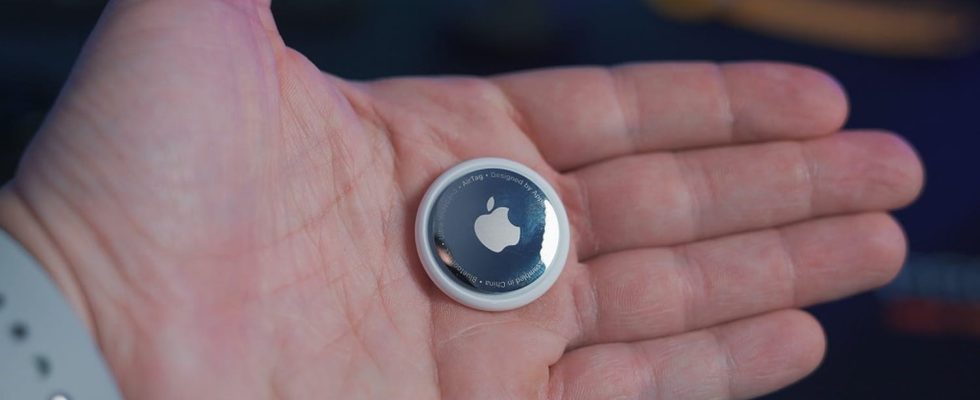The development of the Apple and Google standard for locating unwanted Bluetooth trackers from all smartphones is coming to an end! A good way to fight against spying and harassment!
Popularized by Apple’s AirTag, Bluetooth GPS trackers have been around for a long time. These little cases fit anywhere – on a set of keys, at the bottom of a bag, on a suitcase, in a pocket, in a wallet, under a two-wheeler saddle, in a car, etc. – and allow its owner to locate them precisely in a few moments. Practical for finding your belongings in the event of loss or theft! But, as is often the case with technology, the little gadget was quickly diverted from its initial use. And malicious people started using it for espionage purposes. It is enough to discreetly slip one into luggage or under a vehicle to track someone, without their knowledge. And always know where it is, by locating it on a smartphone in real time.
Apple has also attracted a lot of criticism on this subject following the launch of the AirTag, which forced the company to introduce tools for detecting unwanted trackers (see our article). For its part, Google also rolled out unwanted tracker alerts in Android earlier this year, but they are based on a custom implementation. This was just a first step towards greater interoperability between iOS and Android platforms on one side, and Bluetooth trackers on the other.
Version 01 of the “Detecting Unwanted Location Trackers” specification has just been uploaded to the IETF! This is the unwanted tracker specification that Google and Apple are jointly developing.
Google already rolled out unwanted tracker alerts in Android earlier this year, https://t.co/gK4pFEIuPy pic.twitter.com/g4w3JBZSDf
— Mishaal Rahman (@MishaalRahman) December 20, 2023
Bluetooth tracker detection: avoid spying and harassment
“Bluetooth trackers have created huge benefits for users, but they also present the potential for unwanted tracking, which requires industry-wide action to resolve”declared Dave Burke, Google’s vice president of engineering for Android, last May. “Android has an unwavering commitment to protecting users and will continue to develop strong safeguards and collaborate with the industry to help combat the misuse of Bluetooth tracking devices”.
Also, a few months ago, Apple and Google announced the development of a new common specification allowing iOS and Android smartphones to automatically detect the famous unknown Bluetooth trackers. Most tracker manufacturers, namely Samsung, Tile, Chipolo, Eufy Security and Pebblebee, have joined the project. The goal is to ensure that all tags are discoverable by all smartphones, regardless of their operating system. Apple was waiting for this new standard to be finalized before rolling out unwanted tracking alerts in iOS, while Google is waiting for Apple to do so before rolling out the new Find My Device network on Android.
Result: the process was a little delayed. But that’s it, the Mountain View firm has updated a blog post this week to mention that the “integration version of the standard was published on December 20” – she had previously indicated that it should be completed “by the end of 2023”. All that remains is to hope that Apple will integrate the specification into iOS very soon – perhaps as early as a future beta of iOS 17.3?
